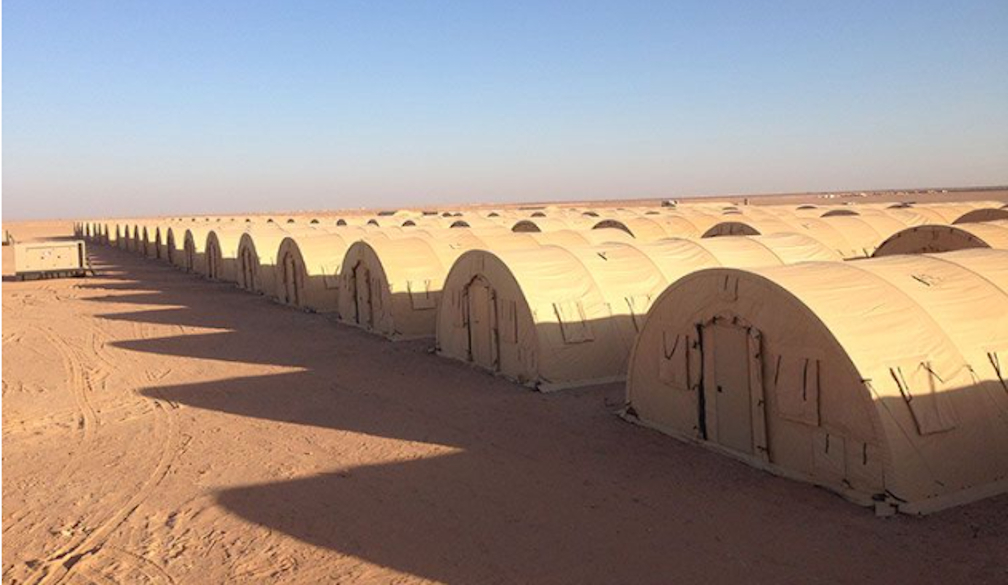Solving Common Electrical Issues: Your Guide To A Residential Electrician
- Written by Metropolitan Digital

Our homes are havens, places where we seek comfort and security. Integral to this comfort is a reliable electrical system, powering everything from our morning cuppa to our evening entertainment. However, like any complex system, household electrics can encounter issues, ranging from minor annoyances to serious safety hazards. Understanding these common problems and knowing when to call in a professional is crucial for maintaining a safe and functional living environment.
Navigating electrical faults or planning upgrades can feel daunting without the right expertise. This is where the invaluable services of a qualified residential electrician become indispensable. They are the specialists equipped with the knowledge and tools to diagnose, repair, and install electrical systems safely and efficiently. Entrusting your home's electrical needs to an expert ensures peace of mind and compliance with all local safety standards.
Understanding the role of your local residential electrician
A residential electrician is far more than just someone who fixes lights; they are skilled tradespeople dedicated to ensuring the electrical safety and functionality of your home. Their expertise covers a vast array of services, from routine maintenance to complex installations. They play a vital role in keeping your household running smoothly and securely, adhering to strict industry guidelines.
These professionals are trained to understand the intricate workings of domestic electrical systems, from the main switchboard right down to individual power points. Their deep knowledge allows them to identify potential hazards before they escalate. They are also adept at advising on energy-efficient solutions and modernising older electrical setups to meet contemporary demands, enhancing both safety and convenience for homeowners.
What services do residential electricians provide?
The scope of work for a residential electrician is incredibly broad, encompassing nearly every aspect of your home's electrical infrastructure. They are equipped to handle everything from minor repairs to major renovations. This versatility ensures that whatever electrical challenge your home presents, there is a qualified solution readily available through their services.
Common services include fault finding and repair, such as addressing flickering lights or tripping circuit breakers. They also manage new installations like additional power points, lighting fixtures, and ceiling fans. Furthermore, they are experts in switchboard upgrades, safety switch installations, smoke alarm installation and comprehensive wiring checks for older properties, all essential for modern electrical safety and efficiency.
Why professional expertise matters for home electricals
Attempting DIY electrical work can be incredibly dangerous, not only posing a risk of electric shock but also creating fire hazards. Electrical systems are complex and require a precise understanding of wiring, voltage, and safety protocols. Professional electricians possess this specialised knowledge, ensuring that all work is carried out correctly and safely.
Moreover, residential electricians ensure that all installations and repairs comply with stringent local building codes and Australian electrical standards. This adherence to regulations is critical for your home's safety and can also be vital for insurance purposes or when selling your property. Their expertise guarantees long-lasting, reliable solutions that prevent future problems and provide complete peace of mind.
Common electrical problems households face
Even in well-maintained homes, electrical issues can surface unexpectedly, disrupting daily life and sometimes indicating underlying problems. Recognising the signs of these common faults early can help prevent them from escalating into more serious situations. Prompt attention from a qualified professional is always the best course of action when electrical anomalies occur.
Understanding the nature of these common issues empowers homeowners to describe problems accurately to their electrician, facilitating quicker diagnosis and repair. From minor flickering lights to more persistent power outages, each symptom tells a story about your home's electrical health. Being informed is the first step towards a safer and more reliable electrical system within your residence.
Flickering lights and power surges
Flickering lights can be a minor annoyance or a warning sign of more significant electrical problems within your home. Sometimes, it is as simple as a loose bulb or an incompatible dimmer switch. However, persistent flickering across multiple fixtures might indicate loose wiring, overloaded circuits, or even issues with the main power supply entering your property.
Power surges, often identifiable by sudden bright lights or electronics turning off and on, can damage sensitive appliances over time. These surges can be caused by external factors like lightning strikes or utility grid fluctuations, but also by internal issues such as faulty appliances or outdated wiring. A professional can assess the cause and recommend solutions, including surge protection devices.
Tripping circuit breakers and power outages
A circuit breaker's primary function is to protect your home's electrical system from damage caused by an overload or short circuit. When a breaker trips, it indicates that too much current is flowing through that particular circuit, or there is a fault. While resetting a tripped breaker is often straightforward, frequent tripping suggests a persistent underlying issue that needs investigation.
Common causes include plugging too many high-power appliances into one circuit or a faulty appliance drawing excessive current. Persistent power outages, especially when neighbours are unaffected, could point to issues with your home's main switchboard or service connection. An electrician can diagnose these problems, ensuring your system can safely handle your household's electrical demands.
Faulty power points and wiring issues
Damaged power points, often evidenced by cracks, loose fittings, or burn marks around the outlets, are not just an aesthetic concern; they pose significant safety risks. A power point that feels warm to the touch, emits a buzzing sound, or fails to provide power consistently could have internal wiring problems, loose connections, or be overloaded. These issues can lead to arcing, short circuits, and potentially electrical fires. Never ignore a malfunctioning power point, as it could be a precursor to a more serious problem. Beyond the visible outlets, issues can lie within your home's wiring itself. Older homes, for instance, might still rely on outdated wiring systems like knob-and-tube or aluminium wiring, which are less safe and less capable of handling modern electrical loads than contemporary copper wiring. Signs of deteriorating or faulty internal wiring include frequent breaker trips on specific circuits, a persistent burning smell (especially near walls or appliances), discoloured outlets or switch plates, or even minor shocks when touching appliances. Damaged insulation on wires, often due to age, pests, or improper installation, can expose live conductors, increasing the risk of electrocution or fire. Addressing these wiring concerns promptly is crucial for the safety and integrity of your home's electrical system. A qualified electrician can inspect your wiring, identify potential hazards, and recommend necessary repairs or upgrades, such as rewiring specific circuits or your entire home.
Burning smells, scorch marks, and hot components
Perhaps one of the most alarming and immediate indicators of a serious electrical problem is the presence of a burning smell or visible scorch marks. An acrid, plastic-like odour often signifies overheating wires or insulation, which can quickly escalate into an electrical fire. These smells might emanate from outlets, switches, light fixtures, or even from behind walls where wiring is concealed. Similarly, any visible scorch marks or discolouration on outlets, switch plates, appliance cords, or your electrical panel are critical red flags indicating excessive heat and potential arcing. Never dismiss these signs as they point to an imminent fire hazard.
Furthermore, if you notice that light switches, outlets, or appliance plugs feel unusually hot to the touch, this is a clear sign that components are overheating. This can be due to loose connections, overloaded circuits, or faulty internal components within the device or wiring. While some warmth can be normal for high-power appliances in operation, excessive heat is a dangerous symptom. If you encounter any of these warning signs, it is imperative to immediately switch off the power to the affected area at your circuit breaker and contact a licensed electrician without delay. Prompt action can prevent significant property damage or even loss of life.
Outdated electrical panels and service upgrades
The electrical panel, often referred to as the breaker box or fuse box, is the heart of your home's electrical system. It distributes power safely to all circuits. In older homes, panels may be outdated, undersized, or even contain hazardous components like old fuse boxes or specific brands of circuit breakers that have been identified as problematic. Signs that your electrical panel might need attention include frequently tripping breakers (even after addressing appliance loads), flickering lights throughout the house, a buzzing sound coming from the panel, or visible rust and corrosion. If your panel still uses fuses instead of modern circuit breakers, it's a strong indication that an upgrade is overdue.
Modern households demand significantly more electricity than homes built decades ago, with numerous high-tech devices, large appliances, and HVAC systems. An outdated panel might not have the capacity to safely meet these demands, leading to overloads, potential damage to appliances, and increased fire risk. Upgrading your electrical panel to a modern circuit breaker system with adequate amperage can significantly enhance your home's electrical safety, improve reliability, and provide sufficient power for all your needs. It also often adds value to your property and ensures compliance with current electrical codes. A professional electrician can assess your current panel, evaluate your household's electrical load, and recommend the appropriate service upgrade to safeguard your home and family.
Recognising the signs of electrical problems early is paramount to maintaining a safe and functional home. From subtle flickering lights to the unmistakable smell of burning wires, each symptom serves as a warning that should never be ignored. While some minor issues might seem manageable, the complex nature of electrical systems means that DIY fixes can often exacerbate problems and create dangerous situations. Always prioritise your safety and the integrity of your home by consulting a qualified and licensed electrician for any suspected electrical fault. Regular inspections and timely repairs not only prevent costly damages but, more importantly, protect your family from the serious risks associated with faulty electrical systems. Investing in professional electrical care is an investment in your home's safety and your peace of mind.
Also Read: 7 ways a qualified residential electrician can save you money









